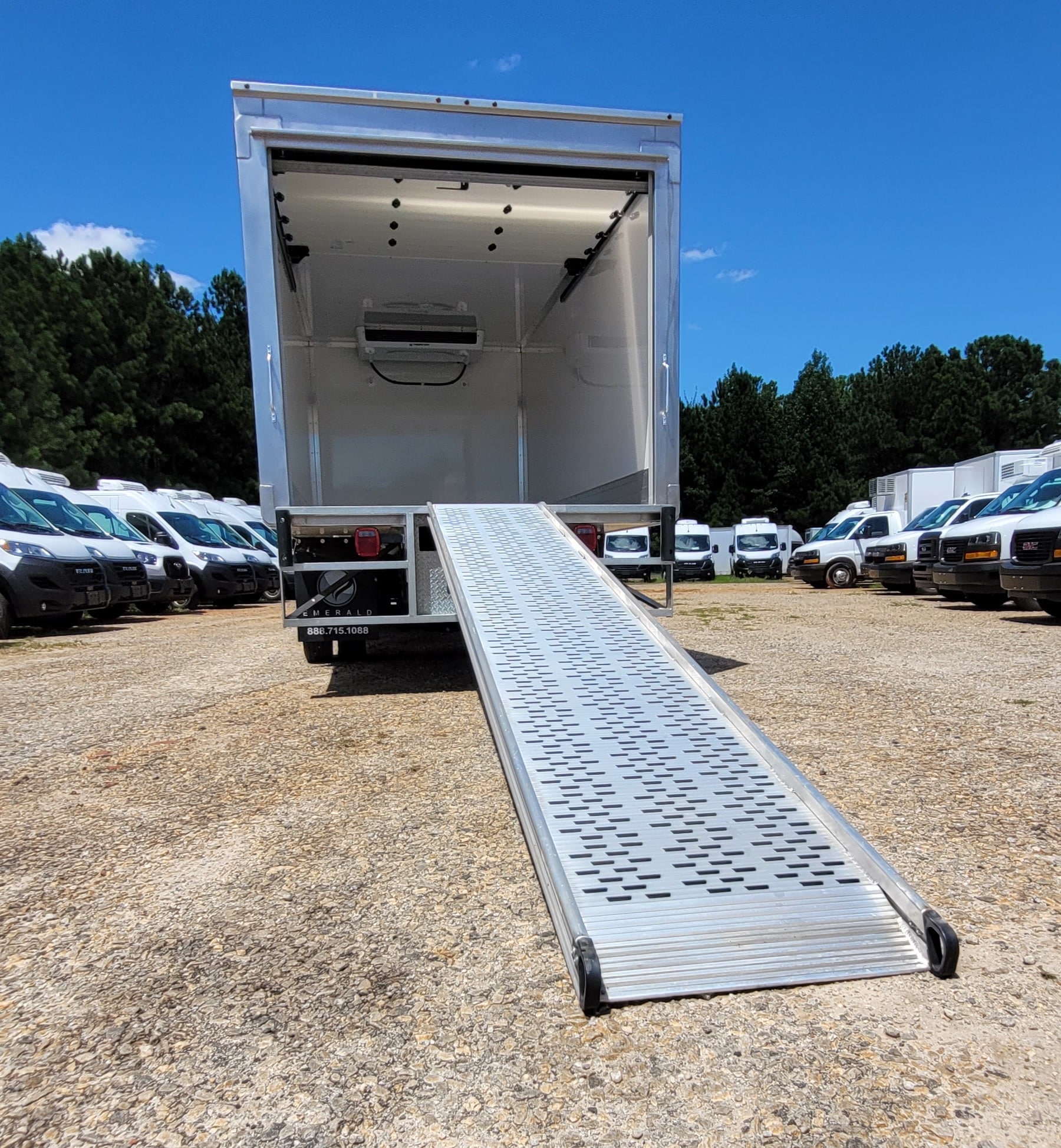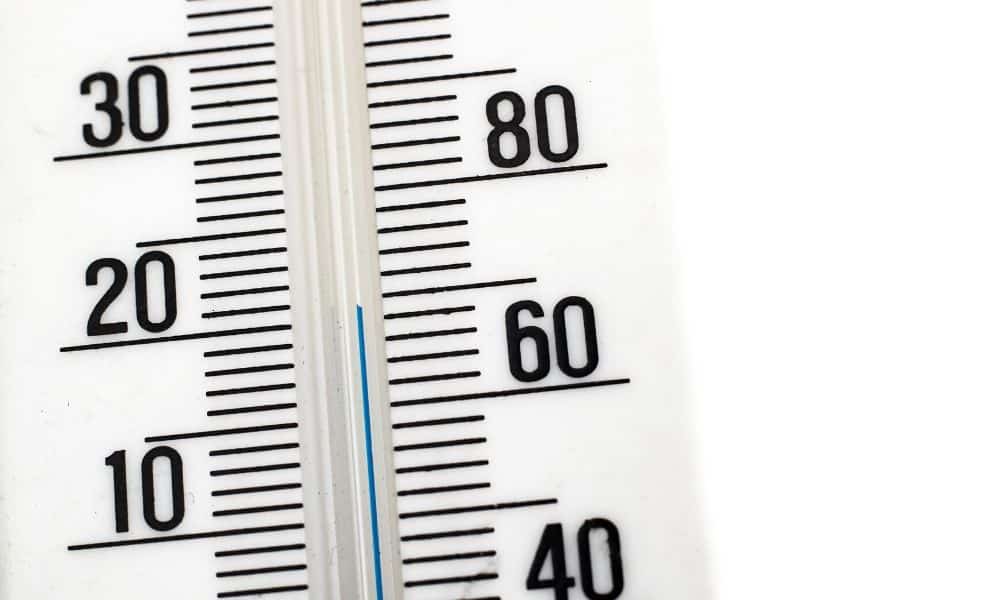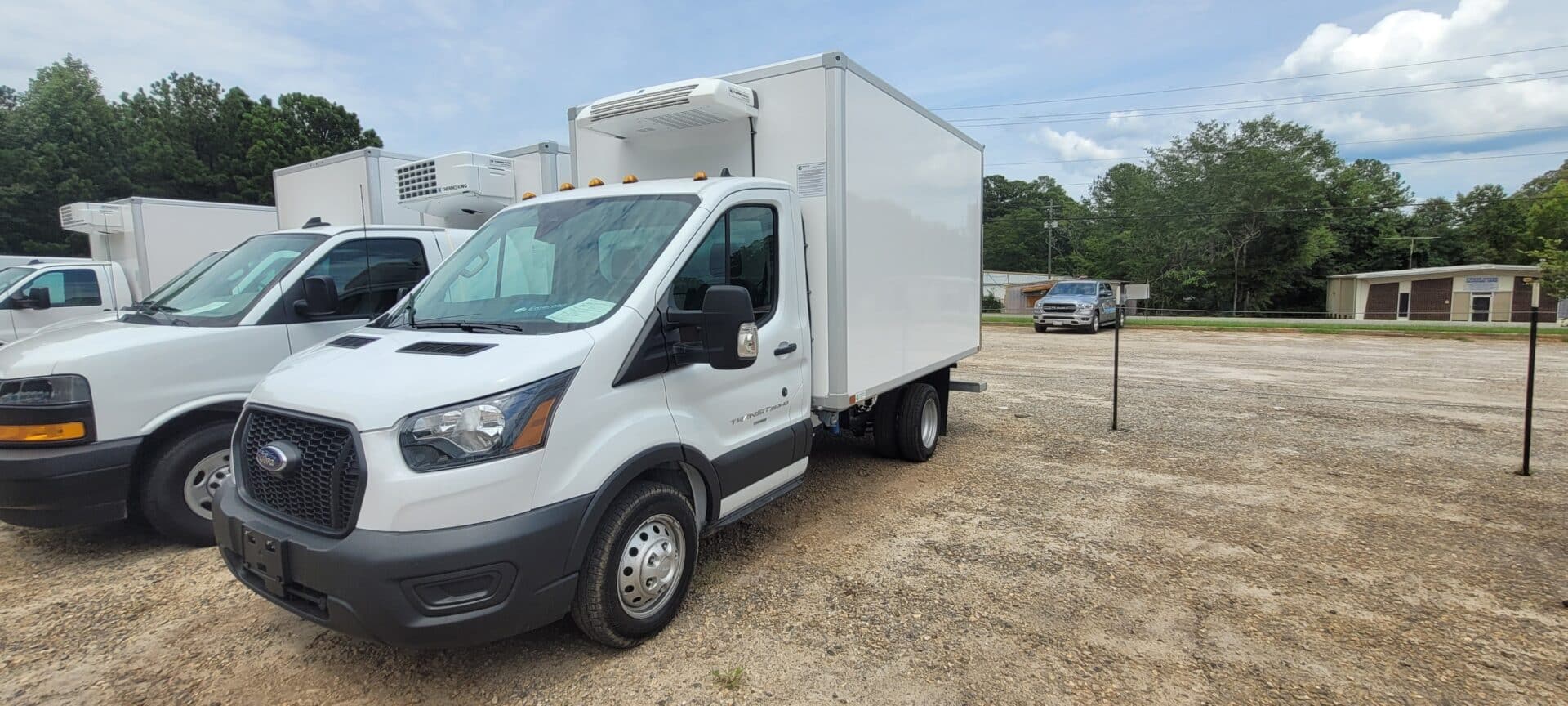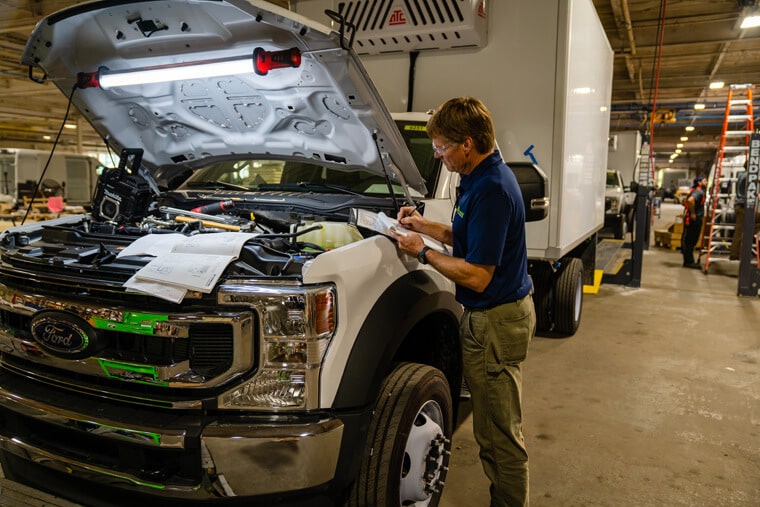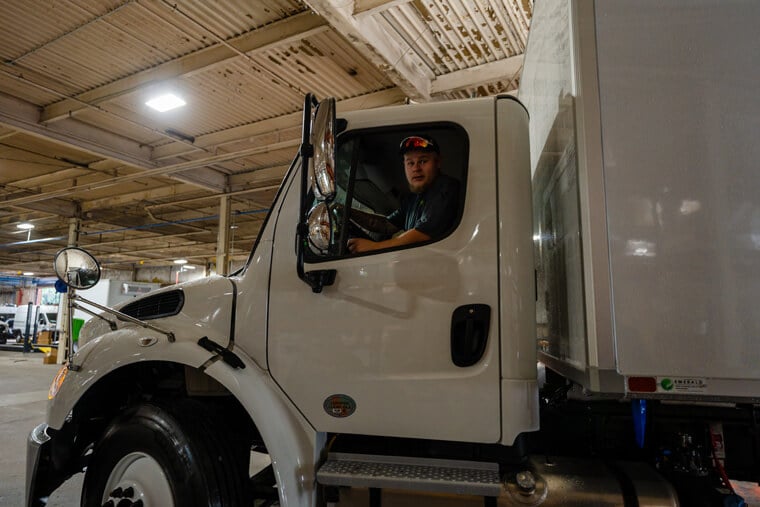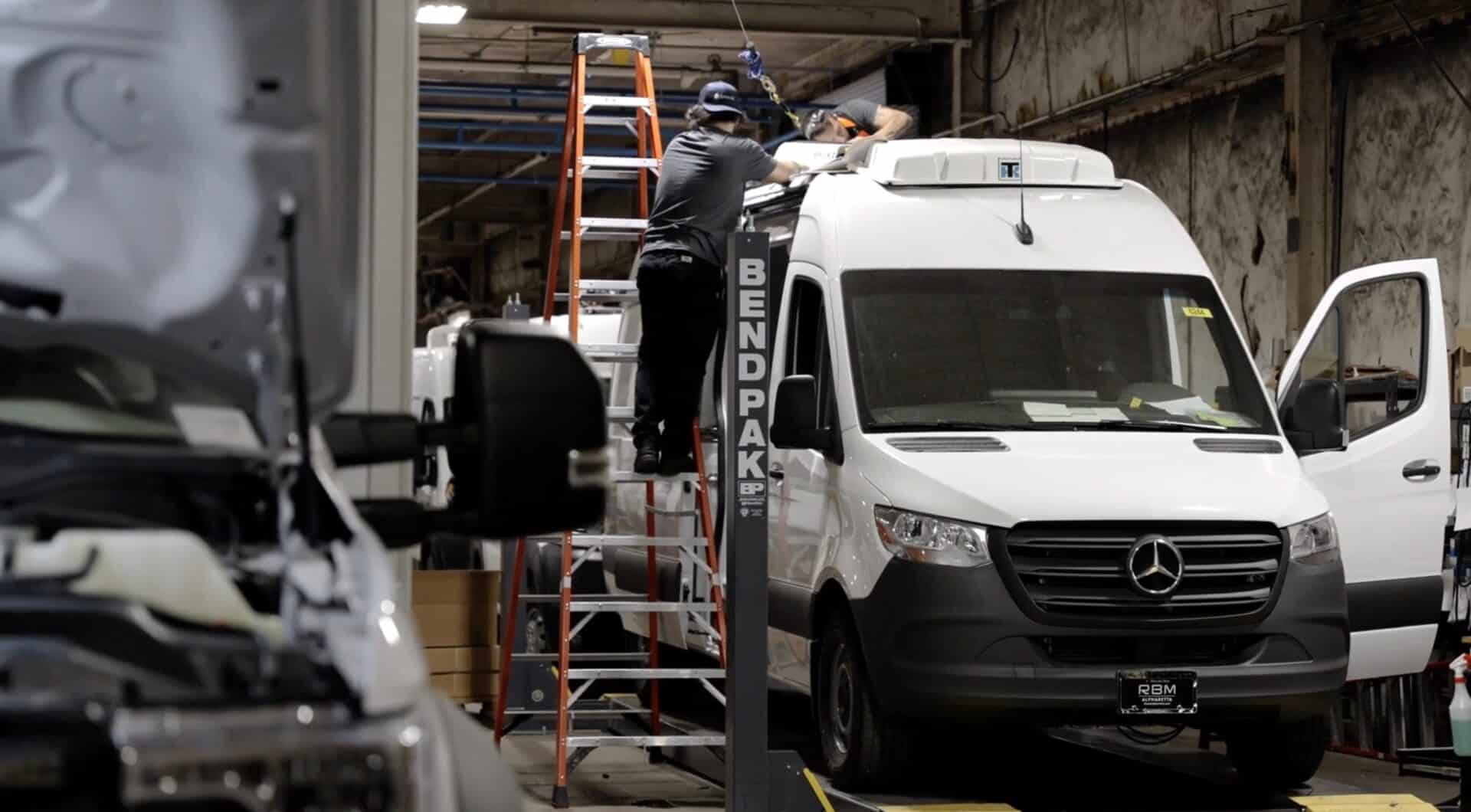
What To Look For in a Refrigerated Van
Todd Cawley | April 11th, 2023
When looking for refrigerated vans for sale for your catering or other transportation needs, you’ll want a reliable, high-quality unit that can get everything from one place to another without complication. Finding a van with everything you need can be tricky, but here is a list of what to look for:
- A Smart Temperature Regulator – Nowadays, refrigerated vans are typically equipped with temperature regulation systems. These devices make sure that the cargo area can be kept at two or more temperatures at the same time. The zones can be separated using dividers, allowing for the transportation of goods that require different climate levels.
- Temperature Range – All refrigerated vans can usually reach temperatures that range from 32℉ to 45℉. However, to make sure your van can maintain the optimum temperature for the goods you’ll be transporting, take into consideration the three classes of refrigerated vans: Class A ranges from 54℉ to 32℉, class B from 54℉ to 14℉, and class C ranges from 54℉ to -4℉.
- Cargo Space and Size – To maintain efficiency, you’ll want to pick the correct size vehicle for your load. While there are many van sizes to choose from, there are four main body types: compact vans (great value, suited for urban routes), full-sized vans (made for light routes, can handle pallets) mid/high roof vans (great for multi-stop deliveries) and finally, catering vans (made for longer deliveries, equipped with the largest payload capacity). Your choice will depend on the quantity of goods you’ll be transporting.
- Maintenance – Refrigerated vans are a sizable investment, so its helpful to purchase a refrigerated van from a seller that can also provide ongoing maintenance. By getting service directly from the creator of the vehicle, you’ll have peace of mind that your vehicle is in the hands of those that know exactly how it is built.
- Economy – Refrigerator vans must maintain strict temperature ranges, which use more fuel than regular vans. On average, a small van usually gets between 35 to 38 miles per gallon. However, this will depend on cargo load, road conditions, and, of course, traffic. To reduce operating costs, choose a van that has the best fuel efficiency possible.
When planning your refrigerated van purchase, don’t forget to consider these critical factors. Even though there is a lot to consider when shopping for refrigerated cargo vans, Emerald Transportation Solutions is here to help. Our industry-leading experts are here to guide you through the process of selecting the best unit for your needs. To see our available inventory, visit our website or give us a call today at 678-928-8619!
Related Articles
Contact Us
Feel Free To Contact Us If You Have Any Questions
What does under DOT mean?
Questions regarding DOT requirements come up often. 10,000 lbs GVW (gross vehicle weight) and over are commercial vehicles that fall under the Department of Transportation regulatory requirements.
What is the difference between GVW and payload?
GVW or Gross Vehicle Weight is the entire weight of the vehicle including the payload. The payload weight represents the amount of cargo you are hauling.
What is a self-powered unit and a vehicle-powered unit?
A self-powered unit has its own fuel source and will run independent of the truck. This is the heaviest and most expensive option. While vehicle-powered units run off the engine via a compressor mounted on the engine. These are less expensive and lighter in weight but you must run the truck or plug the electric standby into shore power.
What does K-factor mean and why is that important?
K-factor is a term that stands for the overall insulating value of the container (truck body). Quite simply the lower the K-factor the better the truck body will be able to maintain a given temperature and require less energy to do so.
How much lighter is a Poly Van vs a US spec body?
Poly Van bodies are very light. On average we estimate we are 75-150 lbs per foot lighter than a traditional sheet and post foamed in place body. These weight savings translates to less fuel burn and less CO2 emissions, along with added payload, the most important benefit.
